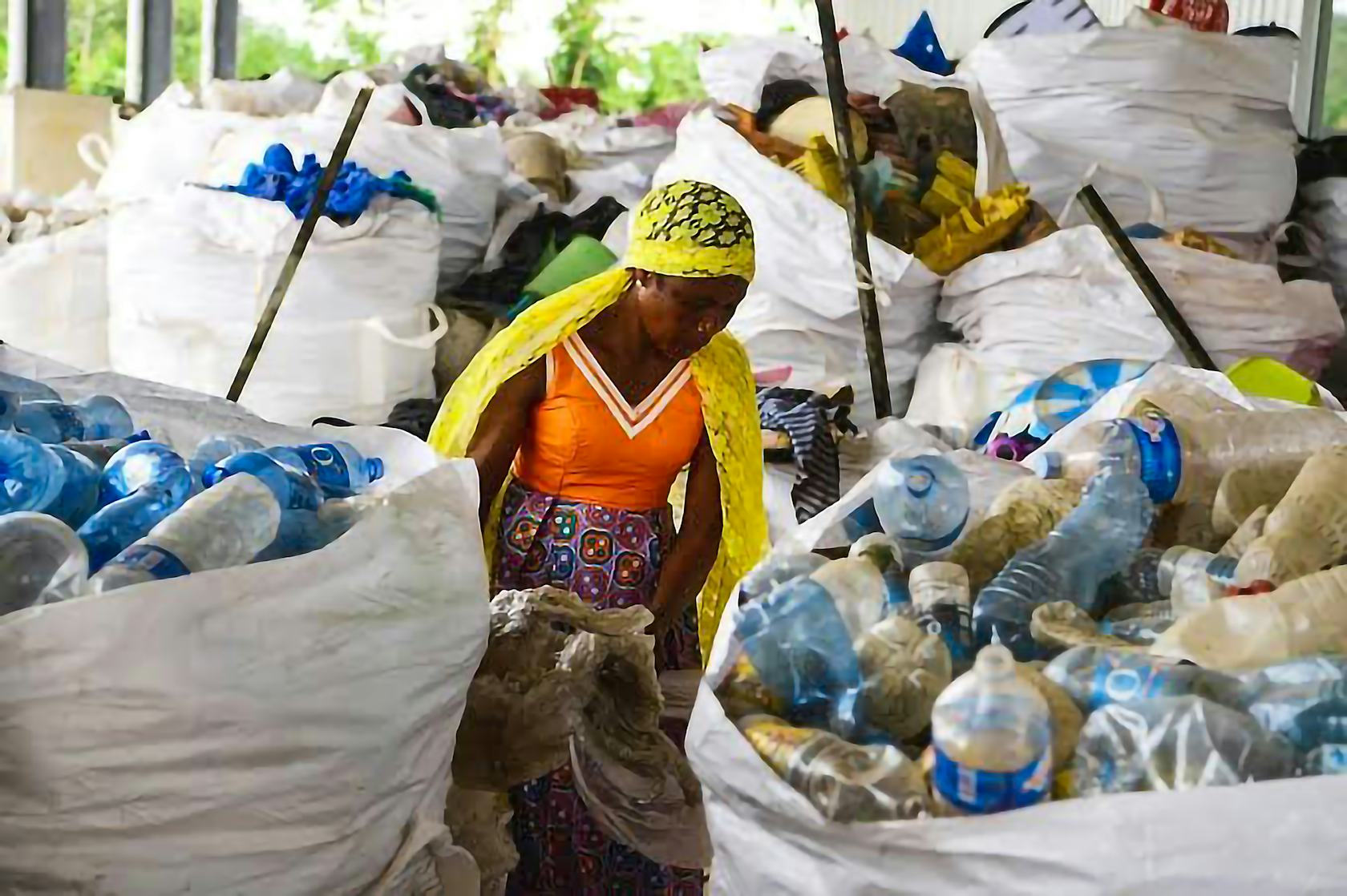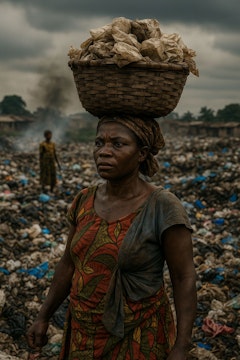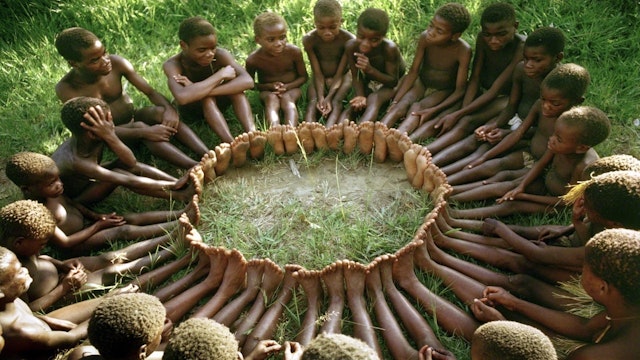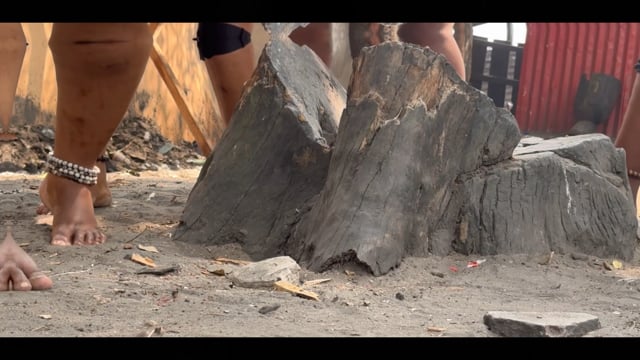Climate Change and the Empowerment of Women and Girls in the DRC
Today, the number of Congolese women with access to quality jobs remains very limited
Today, the number of Congolese women with access to quality jobs remains very limited
Congolese women work mainly in the primary sector, where incomes are not substantial in relation to wages. What's more, in most production units, women are registered as "family helpers" and have no access to property.
Most of them therefore work in agriculture, livestock breeding, agribusiness and many other activities that depend on the climate, and having no choice in the face of the current negative impact of the climate due to pollution in Kinshasa, some have decided to make a living from this situation.
Nana Bomengo places on the scales the bucket of plastic waste she has carried on her head: six kilos. Smiling, she emerges with 1,500 Congolese francs ($0.75) paid by a plastic recycling company that wants to "clean up" Kinshasa, which is crumbling under mountains of garbage. "Today, I didn't sell much, just 1,500 Congolese francs. I'm used to it," explains Bomengo. "Since this factory opened, I've been coming to sell them all kinds of plastic waste. It helps me to feed and look after my family", and my environment at the same time, says this 39-year-old mother of two.
Under Clean Plast's large hangar in Kinshasa, capital of the Democratic Republic of Congo, some twenty people in green T-shirts and red gloves sort plastic objects by category and color. The company has set itself the challenge of cleaning up the city by collecting the plastic waste that accumulates there. Around 10 tonnes are now collected daily from 15 sites, with the aim of cleaning up the city," explains Alexander Bamanisa, managing director of the company set up in 2018.
Located in the working-class, deprived Kingabwa district, Clean Plast employs around a hundred people, and its plastic recycling plant is still operating "at only 20% capacity", according to Jagdeep Pandya, its technical director. Like Mrs. Nana Bomengo, other women come to sell plastic waste, which they carry in bags or other carts. Behind the factory is a landfill as far as the eye can see, dumped by large vehicles. You'll find everything here: bottles, bags, chairs, tables, cans, dolls and more.












